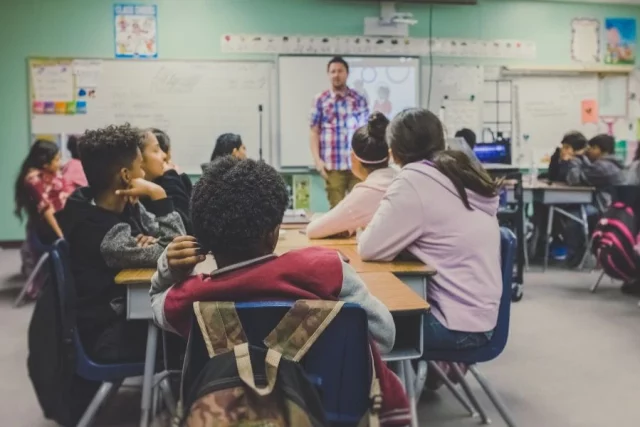Science is an integral part of our lives, and it’s progressing with every passing day. People can access artificial intelligence and interactive websites, and use apps designed to stimulate the brain. Educators say children should be exposed to this world of knowledge and exploration from an early age – and for good reason. In this article, we’ll discuss the importance of teaching science to children.
The Benefits Of Early Exposure
Through early exploration and activities, kids are able to develop a strong understanding of the basic principles of science. This provides a solid foundation for their future education on the subject. Additionally, early exposure can help nurture a child’s natural curiosity and creativity. It can also provide them with an appreciation for the subject that’ll last into adulthood.
Also, this teaching helps kids understand how science is applicable to their everyday lives. Exposure to scientific concepts at an early age encourages critical thinking skills which prove essential for success later on. This makes it easier for them to recognize potential solutions when they encounter problems or questions.
They Can Learn Through Experiments And Activities
Through hands-on experiments, children can learn the scientific processes and discover various facts and principles. Experiments give kids the opportunity to observe what happens when different variables are changed. This allows them to recognize patterns and draw conclusions about cause-and-effect relationships. Moreover, experiments provide an entertaining opportunity for kids to interact with science concepts in a safe environment. It’s also possible for parents to buy science resources trusted by schools and have them home-delivered. Whether it’s making glowing liquid or fake snow, these products are designed to avoid fires or explosions.
Doing activities helps kids understand how the world around them works. It achieves this by getting out of the classroom setting and directly engaging with its environment. This can include exploring nature, taking field trips, or engaging in simulations/role plays outside of school. In turn, children can develop a deeper understanding of how things work, in a way that stays with them after leaving school.
It Helps With Literacy And Numeracy
By learning about concepts such as physical forces, energy, and chemical reactions, children are able to develop a deeper understanding of mathematics and language. This is why it’s important for teachers to use a variety of different activities. As a result, it’ll help kids learn new words related to scientific topics. This can be as simple as creating a word wall or having them read books on various scientific subjects.
Having access to these resources helps kids build their vocabulary, while also reinforcing the scientific concepts they’re learning. With this type of immersive approach, children are better able to comprehend the material being presented, and recall relevant information when needed.
It Enhances Self-Confidence
By exposing children to the scientific process, they become more independent thinkers who are curious about their world. Kids gain confidence from mastering scientific concepts, which can lead to improved academic performance in other areas. Furthermore, science encourages students to explore different ways of looking at problems and gives them the opportunity to create something tangible with their knowledge.
Science teaches children that failure is an intrinsic part of learning—not something that should be feared or avoided. Through experimentation and observation, kids learn that mistakes are often necessary for success. This establishes an attitude of resilience in young learners which will serve them well into adulthood. Finally, science sparks creativity in students as they design experiments or find unique solutions to problems. As kids discover new ideas through exploration and investigation, they come to understand their own potential for innovation. This boosts their self-esteem and gives them the confidence needed for future success in any field.
It Encourages Collaboration
Collaboration gives students the opportunity to work together and develop their team skills. It encourages communication and builds relationships with their peers. Collaborative learning also promotes problem-solving, critical thinking, and creativity. Students can use real-world scenarios to figure out solutions while working with others. They can have meaningful conversations about scientific concepts, rather than simply memorizing facts from a textbook or lecture. Through collaboration, they learn how to solve complex problems together – through trial and error, and problem-solving strategies.
Collaborative learning also helps foster a positive classroom environment. Teachers are able to provide guidance during group activities, and constructive feedback when needed. This allows students to feel comfortable sharing ideas without fear of criticism from their peers.
It Impacts Their Future Careers
Learning science helps prepare students for college-level courses and future job opportunities. It also helps them to think critically. This will come in handy when they’re studying specific topics or performing experiments related to their chosen career path (whether it’s science-related or not).
By learning about scientific concepts, kids gain valuable problem-solving abilities. These are highly sought after by employers when hiring for positions in STEM fields (like engineering or computer programming). Science teaching can give kids the tools they need to take advantage of emerging technologies and scientific advancements in their fields. Knowing how to navigate new technology is essential in many industries today. Having a strong foundation in science can give kids an edge when they enter the workforce, especially when there’s lots of competition for jobs.
The World Needs Scientists!
Science is the foundation of many fields – such as engineering, medicine, technology and more. As we said at the beginning, our ever-changing world is becoming increasingly reliant on it. It’s therefore essential for future generations to have a firm grasp on these concepts.
By instilling a love of discovery in children at an early age, they’ll be able to become successful scientists when they grow up. Both teachers and career advisors can assist students along the way, to ensure they enter the job path that’s right for them.
As you can see, there are many reasons why it’s crucial that kids are taught science. It benefits them as individuals and empowers them for the future. In many cases, too, it serves as a signpost for their future career success.













